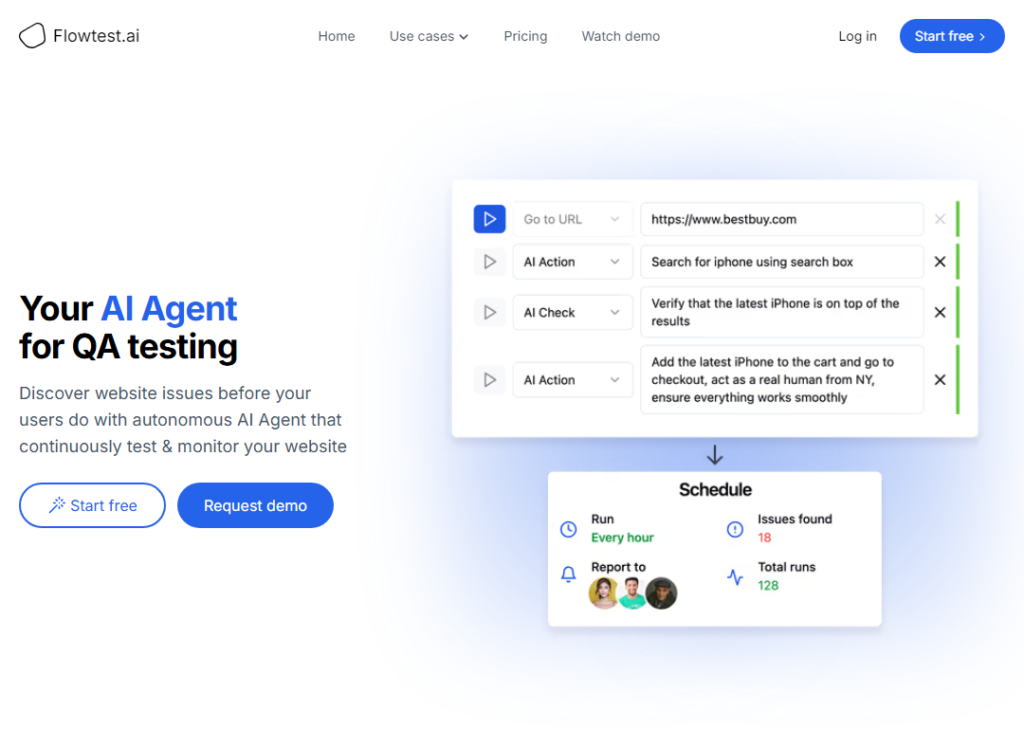Generated by Gemini:FlowTest.ai seems to be a development tool focused on automating End-to-End (E2E) testing for websites and APIs. Here's a breakdown of its functionalities and potential benefits:
Functionalities:
- Visual Testing: FlowTest.ai utilizes visual representations of website elements to create automated tests. This can capture changes in user interface (UI) elements.
- No-code Testing: The platform might not require extensive programming knowledge, allowing users to create tests through a visual interface.
- AI-powered Element Recognition: FlowTest.ai potentially leverages AI (likely Large Language Models like GPT-4) to understand and identify screen elements beyond just text, including icons and buttons. This could improve the accuracy and flexibility of automated tests.
- API Testing Capabilities: FlowTest.ai might extend functionality beyond website testing, allowing users to create automated tests for APIs as well.
- Open Source IDE: There appears to be an open-source version of FlowTest available on GitHub which could be a good option for developers comfortable with coding.
Benefits:
- Improved Testing Efficiency: Automating repetitive E2E testing can save time and resources for developers and testers.
- Enhanced Test Coverage: Visual testing can capture UI changes that might be missed by traditional text-based testing methods.
- Reduced Reliance on Programming Expertise: The no-code approach could make automated testing more accessible to a broader range of users.
- Streamlined API Testing: FlowTest.ai potentially offers a comprehensive solution for both website and API testing within a single platform.
- Open Source Option: The availability of an open-source version provides a cost-effective option for developers and organizations.
Things to Consider:
- Maturity of Technology: AI-powered testing is still under development and might not be as robust or reliable as traditional testing methods in all cases.
- Limited Functionality (Potential): While FlowTest.ai offers some advantages, it's possible other testing tools have more comprehensive features or integrations.
- Open Source Support: Open source projects rely on community support. Consider the available resources and maintainability before relying solely on the free version.
Alternatives:
- Traditional Testing Frameworks: Selenium WebDriver or Cypress.io are popular frameworks that require coding knowledge but offer extensive testing functionalities.
- Other E2E Testing Tools: TestCafe or Applitools are other tools that offer automated E2E testing capabilities.
- API Testing Tools: Postman or SoapUI are dedicated tools for testing APIs.
Overall:
FlowTest.ai seems like a promising tool with its visual testing approach and AI-powered element recognition. However, consider the potential limitations in terms of technology maturity, functionalities compared to other tools, and support for the open-source version.
End of Text
